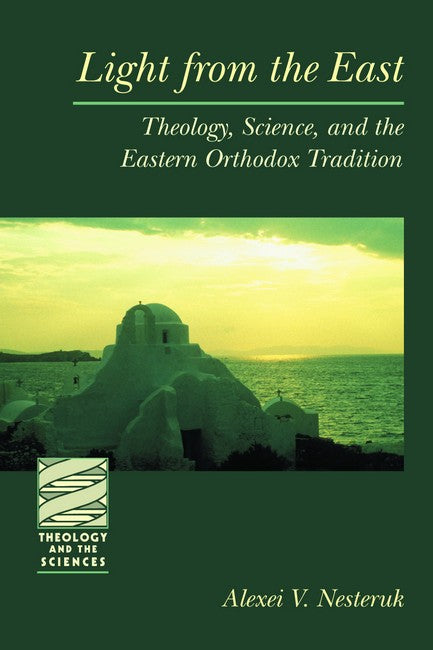Alexei V. Nesteruk is senior research lecturer in mathematics at the University of Portsmouth and a visiting professor intheology and science at St. Andrew"s Biblical and Theological Institute in Moscow.He is a deacon of the Archdiocese of the Russian Orthodox Churches in Western Europe of the Ecumenical Patriarchate.
Description
1. Orthodoxy and Science: Special Experience 2. Patristic Theology and Natural Sciences: Elements of History Introduction The Problem in Its Historical Setting The Apologists and Greek Religious Philosophy Science and Philosophy as Co-operating in Truth Faith as a Condition for Knowledge The Interpretation of Nature The Laws of Nature The Transfiguration of Nature From Uniformity in Nature to the Logos of God: St. Athanasius of Alexandria St. Maximus the Confessor on the Presence of the Logoi of Creation in Scientific Rationality Detachment from Nature and the Love of Nature Latin Church and Natural Sciences St. Augustine of Hippo and the Natural Sciences: Christian Faith and the Classical Tradition Science as the "Handmaiden" of Theology in St. Augustine "Seminal Reasons" and Natural Law in St. Augustine 3. What Makes Theology Unique among Sciences: The Patristic Vision versus Modern Understanding Theology as Experience of God: Patristic Vision The Inevitability of Mysticism in Theology Theology Is Not a Science, It Is Unique Church's Definitions as Boundaries of Faith Apophaticism of Orthodox Theology The Faculty That Makes Theologia Possible and Its Role in Discursive Theologizing what in Theology Can Be Related to Science? Christ-Event as the Foundation of Theology Science and Theology "Compared" Spiritual Intellect and Mediation between Theology and Science Orthodox Theology and Philosophy Orthodox Theology and Science: Epistemological Formula 4. Toward Theological Methodology of Mediation with Science Philosophy and Apophaticism Scientific Monism and Apophaticism Antithetic Dialectics and Antinomial Monodualism Theological Apophaticism and Transcendental Philosophy Kant's Objections to the Argument from Design Patristic Response to Kant: From Monistic Substantialism to Relational Ontology The Logoi of Creation and the World The Logoi of Creation and Antinomies 5. From Cosmos to Logos Hypostatic Dimension in Theistic Inferences from Creation The Universe as "Hypostatic Inherence" in the Logos of God Hypostasis and Nature Hypostatic Inherence Hypostatic Inherence and Co-inherence Science and Enypostatic Mode of the Universe Apophaticism in Cosmology From Empirical Cosmos to the Totality of the World: Basic Diaphora in Creation Antinomial Monodualism and Cosmology 6. Creation in Cosmology and Theology Creation ex Nihilo and Contingency of the World Creation and Incarnation: Intelligibility of the World and Scientific Advance Creation in Classical Cosmology: Cosmological Evolution and Initial Conditions Elimination of Real Time in Quantum Cosmology Some General Comments on Hawking's Model Imaginary Time in Quantum Cosmology and Timeless Time in Christian Platonism Quantum Cosmology: Diaphora in Creation versus Creation out of Nothing 7. Irreversibility of Time and the Logos of Creation Introduction: Irreversibility of Time and Eternity Irreversibility of Time and Boundary Conditions in the Universe Penrose's Model and Its Theological Interpretation Irreversibility of Time through Irreversibility of Processes Irreversibility and Two Views of Nature Prigogine's Treatment of the Time Paradox Philosophical Reflections on the Program of Prigogine: From Irreversibility in Physics to Theological Contingency 8. Humanity as Hypostasis of the Universe The Definition of the Humankind-Event The Humankind-Event and the Anthropic Principle Intelligibility of the Universe and Intelligent Observers: Hypostatic Dimension of Humankind-Event From Transcendentalism in Anthropic Reasoning to Christian Platonism Anthropic Inference in Cosmology and Epistemology The Many-Worlds Hypothesis and Its Theological Interpretation Intelligibility and Meaning of the Universe: Participatory Anthropic Principle The Humankind-Event and the Incarnation Humankind-Event and Destiny of the Universe Conclusion: Universe as a Hypostatic Event Index

